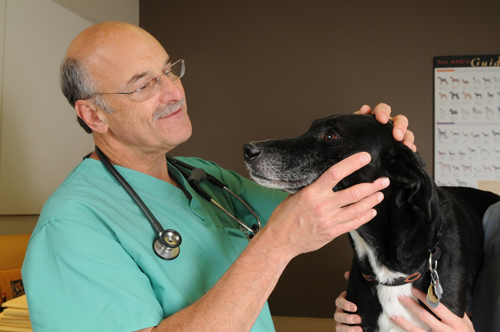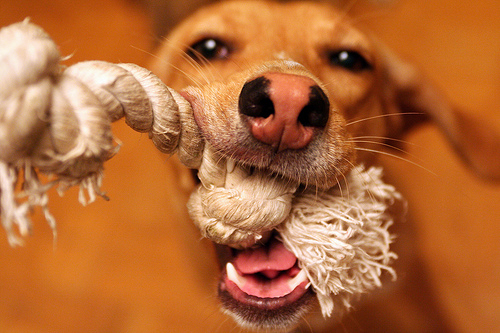Diabetes is a growing problem among humans. It is also an issue for dogs. In both instances, obesity can predispose. The indications of diabetes in a dog are the same as those in a human. They include increased thirst and urination. There may be weight loss. The breath of your dog may smell differently.
If you do not catch the early warning signs, there are other indications. Your dog will become lethargic. It may stop eating all together. A visit to the Vet will be able to confirm if it is indeed diabetes by testing the blood of your dog. If the levels of sugar are high, they indicate the presence of the disease. Blood sugar tests are also done on the urine. Again, if the levels are high, diabetes is indicated.
Fortunately, while there is no cure for diabetes, it is treatable. You can control the effects of the disease. However, you must enter into the process with open eyes and mind. It is a time consuming disease. It requires you to remember the dog is a member of your family. This will help you adjust. It will also help you with the patience your dog needs in his or her time of need.
The treatment of diabetes mellitus requires more time that you may normally spend on your favorite or only family member. You need to commit yourself to changing your regular pattern, adapting it to the requirements of your dog. Not only do you need to adopt a pattern of regular care, you need to implement a schedule. This demands you put in place an unchanging routine. It can affect your daily life style as well as any vacation schedule you may have.
A dog with diabetes requires oral medications, insulin and the decrease of stress levels. This is the minimum involvement you need to implement in order to keep your dog healthy and extend his or her life. Depending upon the type of diabetes and the individual requirements of the dog, you will have to give your dog shots. This could be 1 or more times a day. It is also necessary that you feed your dog at the same time of day. This helps to regulate the disease.
Your Vet or natural practitioner may also recommend a specific type of food. Some canned dog food may help or hinder the condition of your dog. Talk with your vet and dog care professionals about specific diet recommendations before you purchase any type of food. Reduce caloric intake and watch their weight. This will help. Take precautions and institute a solid and effective routine, your dog will then continue to lead a healthy and happy life.

 The Physical Exam: What to Expect at the Veterinarian's Office
By T. J. Dunn, Jr., DVM
It is alway
The Physical Exam: What to Expect at the Veterinarian's Office
By T. J. Dunn, Jr., DVM
It is alway
 Thank You, Annie ... A Letter from an Old Furry Friend
By T. J. Dunn, Jr., DVM
Many people who ha
Thank You, Annie ... A Letter from an Old Furry Friend
By T. J. Dunn, Jr., DVM
Many people who ha
 How Can You Tell Your Pet is Overweight?
Is My Pet Fat?
By Amanda Baltazar
H
How Can You Tell Your Pet is Overweight?
Is My Pet Fat?
By Amanda Baltazar
H
 How NOT to Bore Your Pet
Tips and tricks to entertain your lonely four-legged hous
How NOT to Bore Your Pet
Tips and tricks to entertain your lonely four-legged hous
 Disadvantages And Advantages Of Dog Boarding Solutions Online
When you possess a pet dog, each day could feel like a vaca
Disadvantages And Advantages Of Dog Boarding Solutions Online
When you possess a pet dog, each day could feel like a vaca